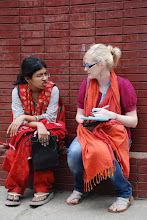Birth registration is a first and significant step in meeting a child’s rights because it is an official acknowledgement of the child's existence and recognises the child's status before the law. Although most of the 28,000 refugees in the camps are registered with the government (forget about the 200,000 who live outside the camps and suffer far worse State neglect), a birth certificate is an additional measure to ensure their rights are protected. And every child has the right to an identity.

Kids at the unregistered Leda camp at Teknaf
UNICEF has been lobbying the Government of Bangladesh to issue birth certificates to refugees for years. Finally, this year, the Ministry agreed. However, they’ve given us a deadline by which the work needs to be completed – work that UNICEF is supporting (with resources) but that local government need to actually do – and with public opinion of refugees as it is, it’s fair to say that motivation is lacking.
There are many factors that spark debate about the situation of refugees in Bangladesh – whether NGO/UN aid supports reliance instead of livelihood development, growth and sustainability; government reluctance to provide additional support; “forced repatriation” as preferred solution; no legal framework for the protection of refugees in Bangladesh; host community discontent…the list goes on.
However, it is not as though the aid being delivered in Cox’s Bazar is targeted solely at refugees. UNICEF alone has country-wide projects that benefit the host community in Cox’s Bazar, and our district-specific projects aim to be inclusive of and beneficial to all community members. But, for all this complexity, what surprises me most is that for a country so recently and deeply affected by persecution, there seems little concern for the plight of these Burmese refugees.
And, most depressingly of all, this apathy is pervasive within the local government and makes our task here that much harder.
At a meeting with government and judiciary in Cox’s Bazar, in an effort to stimulate cooperation to ensure the release of children currently in Cox’s Bazar jail (children in jail with adults!), we were faced with stubborn, malignant, antiquated beliefs and opinions and undermined at every opportunity.
Bangladesh is a signatory to the Convention on the Rights of the Child, but there is clearly a long way to go before all Bangladeshi children are ensured these rights. UNICEF is working closely with the Government to review the Children Act 1974 and to develop a national child protection system. This is no easy task but changing legislation is only part of the struggle – effecting social and behavioural change in Bangladesh is a long and uphill battle.
Although the CRC stipulates that a ‘child’ is aged up to 18 years, the Bangladeshi Children Act puts that age at 16. Bangladesh is a signatory to the CRC and as an international guideline this should take precedence. But with social norms as they are (high rates of early marriage, child labour, widespread poverty, etc) the reality is far from ideal.
UNICEF’s communication for development strategy is working to effect social and behavioural change in Bangladesh. We are engaging all stakeholders to ensure participation, build capacity, build knowledge and encourage best practices across our education, protection, health and water/sanitation sections.
So it is particularly upsetting when at a meeting with high ranking government officials who have worked with UNICEF for the 60+ years we have been in Bangladesh, some of whom have attended several UNICEF training courses, to get caught up in an debate around whether they are legally obligated to help the six ‘children’ aged between 16 and 18 who were in the jail and without any legal representation. One high ranking gentleman even tried to argue that due to the social and geographical climate in Bangladesh, 14 years should be the legal adult age…I almost had to be held down. Legally? It’s a gray area. But morally?
Equally depressing is the legal black hole that refugees in jail face. If they are not registered (at one of the camps) then UNHCR cannot assist them, Myanmar won’t take them back, and without any legislation around refugees in Bangladesh, their future is uncertain.
From that depressing meeting we went to the jail to visit the children. They were scared, pale faced and abandoned by their families for bringing them shame. One child had been in jail nine months for a small theft. All he needs to secure his release is for his father, a local government officer, to ask. Another child, arrested a year ago, refused to admit to us that he was a refugee, because he knows what that means for his future. None of the six children in Cox’s Bazar jail had, prior to our intervention, legal representation or a chance at release. And no one cared.
UN presence in Bangladesh is not a on-going guarantee. What I can’t help but wonder is what the hell will happen to these children, to these refugees, to the future of this country, if the opinions and actions of those in authority cannot be reasoned with?
Who will protect the children then?

Great post Case.
ReplyDelete